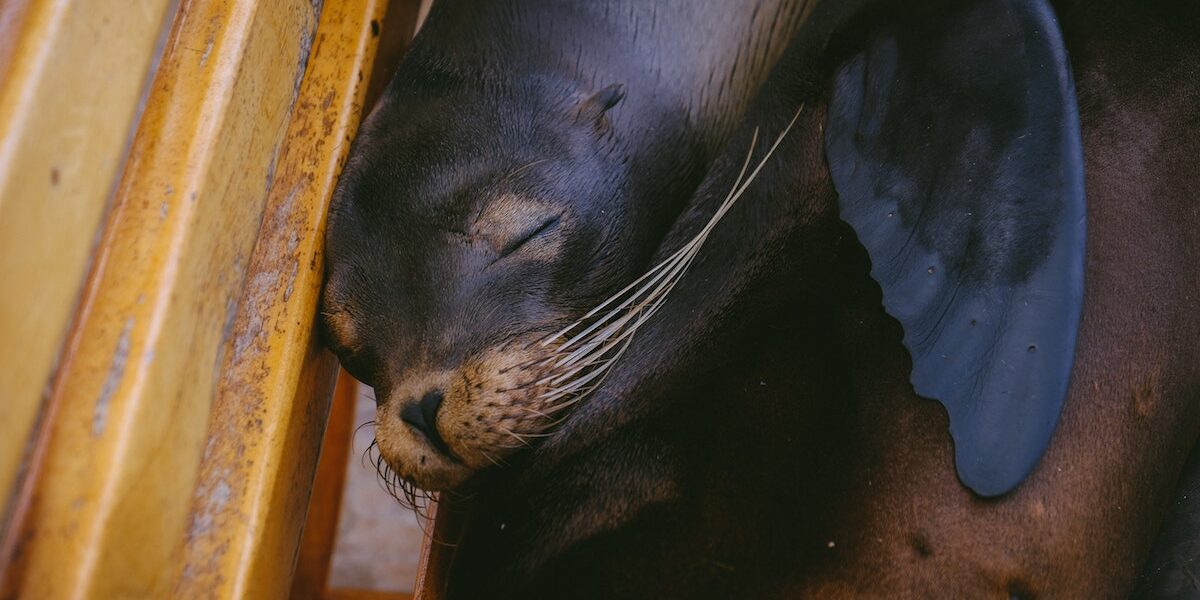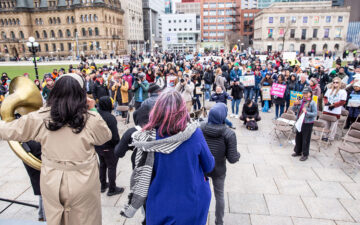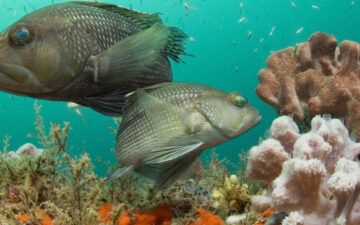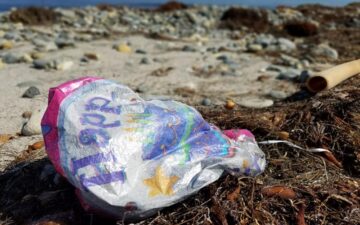It would be nice to find ways and times to be consciously grateful for what we receive every day, but we all know that it can be hard to do so when schedules fill and deadlines loom. Thus Thanksgiving week offers us a nice opportunity to step back and express our thanks, however briefly. The amazing thing about the ocean is that it fulfills so many of our needs not only without our expressed gratitude, but also despite the many ways we take it for granted, or worse, cause harm to the life within.
We all know about what the ocean provides us. Half of the oxygen we breathe, literally every other breath we take. Absorption and storage of nearly 30 percent of the greenhouse gases our activities emit. The majority of protein for 1 billion people, and a substantial contribution to the diets of most of the rest of us. Half of the world’s population lives within 50 miles of a coast, and more move to the coast every day. Tourism drives the economy of dozens of coastal and island nations—sun, sand, and sky being the fastest growing sector of this global industry1.
The threats to the ocean are well known and well enough understood. Too much bad stuff going in and too much good stuff coming out. Thus, we need to both cut the bad stuff and help the ocean keep storing what we can’t cut; and we need to leave more of the good stuff in the ocean and restore it where we can. And we need to make sure that as we flock to her shores to swim, sail, fish, and play, we do not love her to death.
Here at The Ocean Foundation, we strive to be at the cutting edge of developing and disseminating strategies for improving the human relationship to the oceans. We want to ensure that everyone on the front lines of ocean conservation have access to the best tools possible to do their jobs. Sometimes that means making sure turtle tags are safely delivered to the researchers on the beach in Cuba or Costa Rica, or that Japanese marine mammal activists get the advice they need to defend the dugongs of Okinawa. Sometimes that means helping a community recognize the importance of a healthy marine park to their own economic, social, and environmental well-being. Sometimes that means spending years developing an idea with input from dozens of stakeholders and then sharing it freely. Sometimes that means coming up with creative ways for you to improve your own relationship with the oceans in ways that help restore critical habitat such as our SeaGrass Grow program and its Blue Carbon Calculator.
Thanksgiving is followed by Giving Tuesday—a global opportunity to give back. A gift to The Ocean Foundation is your opportunity to say “Thank you” to the ocean and all of those who defend her, and to help all of us who depend on her.
1For more on global coastal tourism see this report from CREST.







